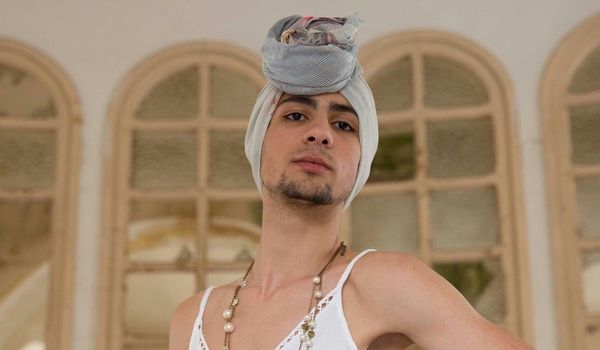In this unprecedented global pandemic, everyone is affected. Yet, history has shown us that people who are already marginalized within societies tend to be harder hit by crises than others. This is certainly the case for lesbian, gay, bisexual, transgender, intersex, and queer (LGBTIQ) people, due to prevailing stigma, discrimination, and exclusion, especially where same-sex relations or transgender identities are criminalized.
Early in the pandemic, OutRight Action International sought to characterize how the global COVID-19 pandemic - and its containment measures - were affecting LGBTIQ lives in real time. The human right organisation documents and defends human rights for LGBTIQ persons around the world. Our report “Vulnerability Amplified: The Impact of the COVID-19 Pandemic on LGBTIQ People,” released on May 7, 2020, describes our findings based on a literature review and in-depth interviews with 59 LGBTIQ people from 38 countries.
History of LGBTIQ Exclusion During Crises
The literature review confirmed that emergencies exacerbate vulnerability for those already struggling against inequality in its many forms. Well documented experiences from the Indian Ocean tsunami in 2004, the Haitian earthquake in 2010, and Tropical Cyclone Winston in 2016, among others, highlight how LGBTIQ individuals either fall through the cracks or are simply excluded in humanitarian efforts before, during, and after emergencies. One issue is that most global frameworks that guide emergency response do not incorporate strong intersectional analyses. For example, strategies addressing the gendered impacts of emergency tend to use a narrow gender framing, restricting the definition to cisgender women and girls. Such framing overlooks the specific barriers that LGBTIQ people may be facing in accessing support due to their sexual orientation, gender identity and expression, or sex characteristics.
The accounts from those interviewed reflected these historical realities and pointed to specific challenges being faced by LGBTIQ people globally during this unprecedented pandemic—whether directly from the virus or from the economic fallout. Seven key themes emerged: Devastation of livelihoods and rising food insecurity; disruptions in health care access and reluctance to seek care; elevated risk of family or domestic violence; social isolation and increased anxiety; fears of societal violence, stigma, discrimination, and scapegoating; abuse of state power; and concerns about organizational survival, community support, and unity.
Devastation of Livelihoods and Food Insecurity
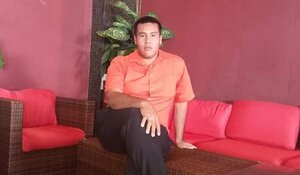
On the theme of devastation of livelihoods, the speed with which people were facing hunger was striking. Many interviewees described having to decide between quarantining or eating. Why? Because in many countries, LGBTIQ people are over-represented in the informal sector, without job protections, and often rely on daily wages. William, a drag entertainer in Belize, told us that “as an effeminate gay person, this is the only job I can find,” but without events or shows, he earns nothing. “Donna Canlas” (pseudonym), a bisexual man from the Philippines, works as a hairdresser. The salon is closed indefinitely, leaving him with an empty bank account. A disproportionate number of trans women, in particular, end up in sex work due to discrimination in other sectors; under the current circumstances, this work is not possible. As Millicent Achieng, a lesbian from Kenya, noted, “most [LGBTIQ] people live from hand-to-mouth and can’t afford to stay indoors because this would mean they don’t have any money or food”.
Reluctance to seek health care and disruptions in access
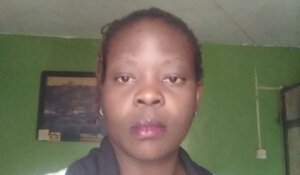
Access to healthcare for LGBTIQ people can be challenging in normal times as many experience discrimination, hateful attitudes, and even refusal of services in medical settings. It is no wonder, then, that queer people may be reluctant to seek care now, which could have lethal effects for them and those around them. Liza, a trans woman in Russia said: “I will call the ambulance only if I am suffocating; only if I feel a very real threat to my life. I'm afraid that if I get hospitalized, I will be placed in the men's ward, and that the doctors will not understand my situation, that they will treat me worse than others.” Moreover, for people living with HIV, or trans and intersex people relying on hormonal treatment or other gender-affirming care, regular medication is crucial. But in countless places, this is now not possible, either due to overwhelmed health care systems, lockdowns, or because some forms or care are now deemed non-essential.
Increases in domestic violence and isolation
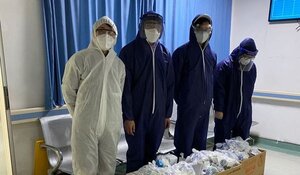
Lockdowns and physical distancing measures also brought news of soaring domestic violence and abuse rates across the world as well. This is especially relevant for LGBTIQ people whose families may not accept them. In fact, OutRight's report “Violence Through the Lens of Lesbian and Bisexual Women and Trans People in Asia” showed that domestic and family violence was the most common form of violence that LBT people experience. Our research on the effects of the pandemic shows that now this risk is even higher, as queer people are having to return to their families of origin for shelter, and leaving home even for a moment may not be possible. Such circumstances also greatly exacerbate the sense of isolation and loss of community connection. For many queer people, forming chosen families and identifying safe spaces to gather have been essential to survival.
Scapegoating
In the public sphere, LGBTIQ people in a range of countries are being blamed for the pandemic as God’s punishment. Such rhetoric, most often by religious leaders, adds fear and anxiety and increases the risk of violence. Karishma, a transwoman from Liberia, noted, “Being seen as the cause of the outbreak makes us a target. I am concerned about my safety, and the safety of other LGBTIQ people. Some of us are frontline activists and we are well-known in Liberia. We can face an attack at any time.“
Organizational survival
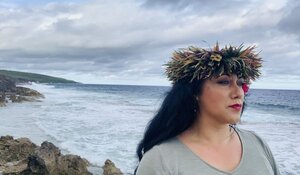
Finally, the pandemic poses serious challenges to LGBTIQ movements, with concerns about how local advocacy and community-based service organizations will survive. Respondents expressed fear about the future of funding and how they can continue their advocacy work, with several suggesting that their movements are being set back by years. Phylesha Brown-Acton, a transgender woman originally from Niue, said, “I worry that we are going to become more invisible in the bigger political picture – our fight and our politics are no longer going to be factored in. I am worried that our rights and the things harmful to us will no longer be a priority anymore – that we will become insignificant to government priorities overall. Once you become invisible, you become voiceless.”
The findings of our research are echoed by OutRight’s COVID-19 Global LGBTIQ Emergency Fund. Within weeks, we received over 1500 applications, more than half requesting funding for food supplies. As ever, LGBTIQ organizations are trying to step in where other institutions fail to safeguard marginalized LGBTIQ communities, but they cannot do it alone. Donors and agencies involved in the COVID-19 response must ensure that support is inclusive and responsive to LGBTIQ needs (17 June 2020).

